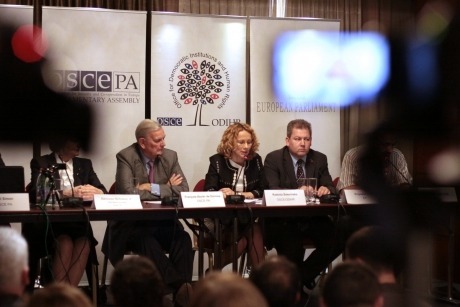
The OSCE Office for Democratic Institutions and Human Rights (ODIHR) has released its final report on Armenia’s parliamentary elections, held on 6 May 2012.
The report concludes that the elections “were characterized by a competitive and largely peaceful campaign”, and offers recommendations, including ways to improve the integrity of the election process.
Reading between the lines, however, RFE/RL has noted, that ODIHR again avoided calling the May 6 elections democratic.
The report notes that the new Electoral Code provides a generally solid framework for the conduct of democratic elections, but contains a number of substantive shortcomings that remain to be addressed.
The reports says that the election commissions, law enforcement bodies and courts should interpret, implement and enforce the electoral legal framework with consideration for the spirit and intent of the law, which aims to ensure an equal playing field for contestants, the free will of the voters and the integrity of the electoral process. Furthermore, election commissions and courts should not take an overly formalistic approach to handling election-related complaints.
The report also recommends that authorities and contestants demonstrate more respect for the right of citizens to freely express their fundamental civil and political preferences, as required by the OSCE 1990 Copenhagen Document. They should refrain from putting pressure on voters, both during the campaign and on election day, the report says.
Other recommendations include increasing transparency of the work of the electoral and state authorities, providing additional voter education on the secrecy of the vote, enhancing campaigns against vote buying and vote selling, and continuing efforts to improve the accuracy of voter lists.